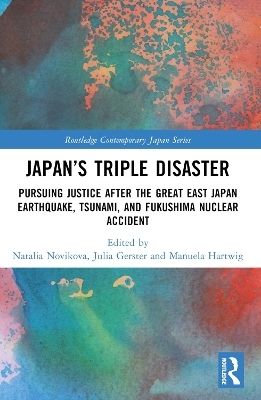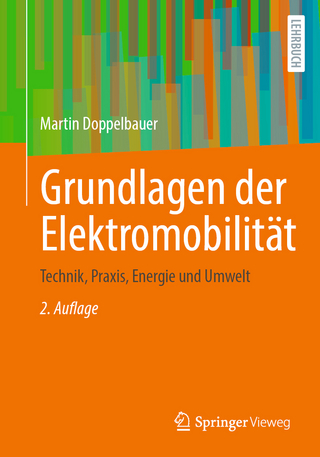
Japan’s Triple Disaster
Routledge (Verlag)
978-1-032-37547-2 (ISBN)
The term "natural" disasters is a misnomer; cataclysmic natural events that impact humans can often be anticipated and their consequences should be prevented – the failure to do so is a failure of politics, policy and risk planning. Presenting research on more than a decade after the Great East Japan Earthquake, the chapters highlight not only the manifold challenges in the direct disaster response and policymaking but also the difficulties of "just" long- term recovery. Arguing for just distribution, recognition and participation, this volume provides a diversity of perspectives on these issues as experienced after the 2011 disasters through detailed and nuanced analyses presented by early career researchers and senior academics coming from various countries and continents of the world. The insights of this volume galvanise the discussion of disaster governance and highlight the variety of disaster (in)justices and the ways disasters force people to contest and reimagine their relationships with their countries, neighborhoods, families, and friends.
A valuable read for scholars and students researching issues related to mass emergencies, justice theory and civil activism.
Natalia Novikova is a Language Instructor at Tamagawa University, Japan. She received her Ph.D. in International and Advanced Japanese Studies at the University of Tsukuba, Japan, exploring the nature of citizen activism in the aftermath of the 3.11 disasters. Julia Gerster is an Assistant Professor at the Disaster Culture and Digital Archive Division at the International Research Institute of Disaster Science at Tohoku University, Japan. She received a Ph.D. in Japanese studies at Freie Universität Berlin working on the role of local culture in community recovery after the Great East Japan Earthquake. Manuela G. Hartwig is currently a research associate at the National Institute for Environmental Studies (NIES), Tsukuba, Japan. She received her Ph.D. from the University of Tsukuba in Advanced Social Japanese Studies in 2020 focusing on the role of "science advisers" in Japan’s energy and climate change policymaking network.
Introduction
Natalia Novikova, Julia Gerster, and Manuela Hartwig
Part I: Nuclear Disaster and Recovery Challenges
1. Ten Years of Recovery and Revitalization Policies after the Fukushima Daiichi Nuclear Disaster
Kota Kawasaki
2. Restoring the Rights of Fukushima Nuclear Accident Victims through Collective Lawsuits
Masafumi Yokemoto
3. Voicing the Invisible: Resilience, Adaptation, and Resistance in the Narratives of the Fukushima Plaintiffs
Giulia De Togni
4. Japanese Politics and Nuclear Energy in the Ten Years since Fukushima: A Meta-Political Justice Perspective
Katsuyuki Hidaka
Part II: Dismissed Voices and Agency
5. Disasters and Domestic Violence: Making Structural Injustices toward Women after the Great East Japan Earthquake Visible
Mariko Ogawa
6. Citizenship and Disaster: Experiences of Foreign Women after 3.11
Sunhee Lee
7. The Recognition of "Death by Disaster"
Yuki Sadaike
Part III: Discredited Voices in the Credibility Economy of Disaster
8. Strategic Just-Peacebuilding and Citizen Activities after the Fukushima Daiichi Nuclear Power Plant Accident
Akiko Ishihara
9. The Right to Be Heard: Analyzing Parents’ Activism in the Kantō Region
Natalia Novikova
10. Growing up in Fukushima Prefecture after the Nuclear Accident: Young People Give Voice to the Stories of Non-Evacuated Communities
Shira Taube Dayan
Part IV: Place-making and Identity
11. Community Empowerment for a Just Recovery of Gathering Spaces: Case Studies from 3.11
Yegane Ghezelloo and Elizabeth Maly
12. Lowering Mountains, Raising Walls: Impacts of Rebuilding in Coastal Miyagi Communities
Alyne Delaney
13. From Being Seen and Heard to Feeling Displaced: The Double-Edged Sword of Tōhoku’s Post-Disaster Tourism
Anna Vainio and Annaclaudia Martini
14. The 3.11 disasters and Challenges of Pursuing Justice: Epilogue
Aya H. Kimura
| Erscheinungsdatum | 16.10.2024 |
|---|---|
| Reihe/Serie | Routledge Contemporary Japan Series |
| Zusatzinfo | 15 Tables, black and white; 10 Line drawings, black and white; 25 Halftones, black and white; 35 Illustrations, black and white |
| Verlagsort | London |
| Sprache | englisch |
| Maße | 156 x 234 mm |
| Gewicht | 540 g |
| Themenwelt | Naturwissenschaften ► Biologie ► Ökologie / Naturschutz |
| Naturwissenschaften ► Geowissenschaften ► Geografie / Kartografie | |
| Sozialwissenschaften | |
| ISBN-10 | 1-032-37547-7 / 1032375477 |
| ISBN-13 | 978-1-032-37547-2 / 9781032375472 |
| Zustand | Neuware |
| Informationen gemäß Produktsicherheitsverordnung (GPSR) | |
| Haben Sie eine Frage zum Produkt? |
aus dem Bereich


